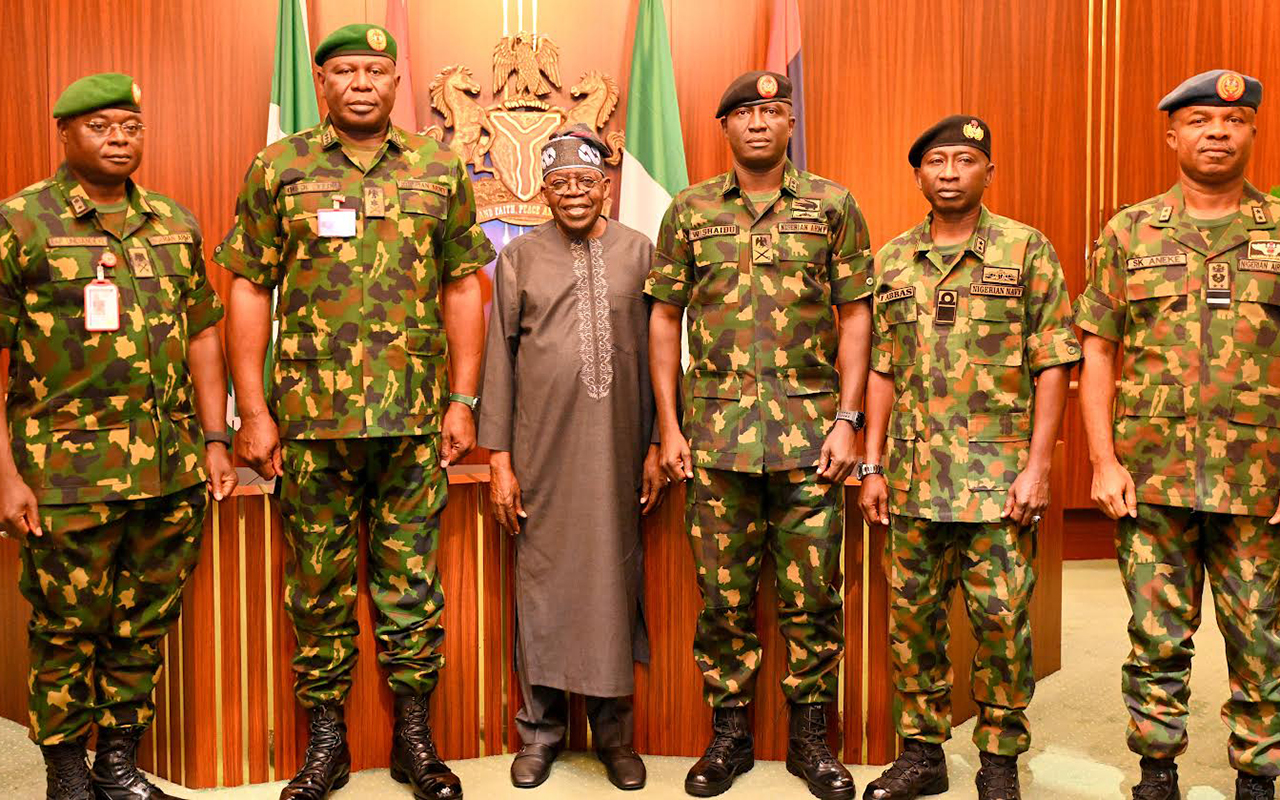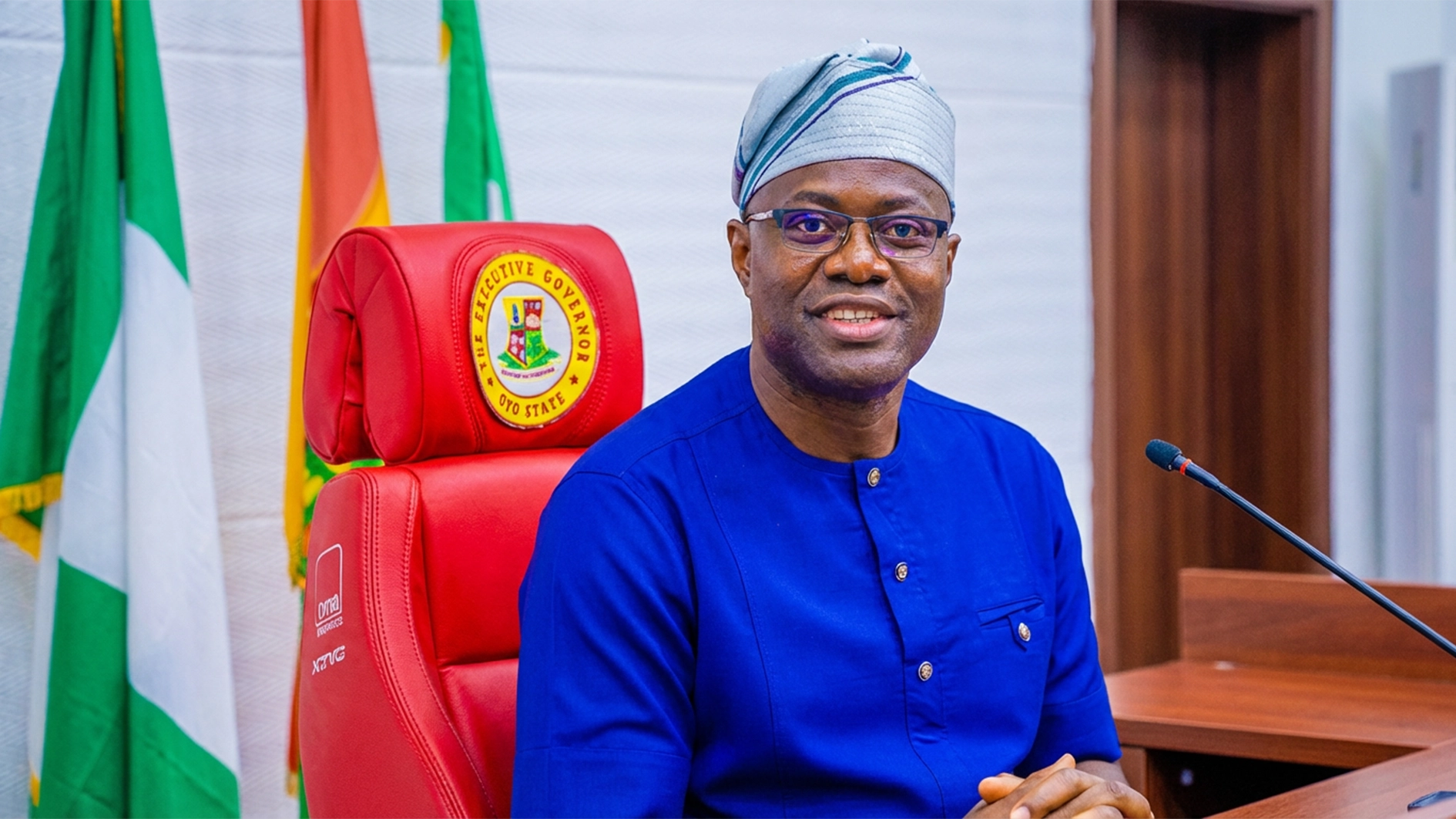
• Ousted 23 LG bosses rally behind Fubara
• Diri canvasses dialogue, urges FG to set up conciliation panel
• INC President wants President to reconsider action
• Report says emergency rule threatens oil production, revenue targets
The National Civil Society Council of Nigeria (NCSCN) has advised President Bola Tinubu to ensure that the state of emergency he declared in Rivers State does not extend beyond the stipulated six months.
As the half-year period counts, the immediate past local council chairmen in Rivers have pledged support for suspended Governor Siminalayi Fubara. Governor of Bayelsa State, Douye Diri, therefore, appealed to Tinubu to reconsider his declaration of emergency on Rivers and instead set up a committee to reconcile the different parties to the dispute in the state.
He urged the President and the National Assembly to constitute a committee of eminent personalities to immediately intervene and restore peace and bring the legally constituted government back to office in Rivers.
Also, the President of Ijaw National Congress (INC), Prof Benjamin Okaba, urged the Federal Government to reconsider its actions and respect the sovereignty of the Rivers people.
The declaration of emergency in Rivers and the suspension of democratic governance could significantly disrupt Nigeria’s oil production, exacerbating economic pressures, according to a report released yesterday.
Executive Director, NCSCN, Mr Blessing Akinlosotu, who advised Tinubu, yesterday, at a briefing in Abuja, also called for the termination of the embargo placed on the state within three months.
“We call on the Federal Government to ensure the state of emergency does not extend beyond the stipulated six-month period. If possible, it should be terminated within three months and ensure that no one is victimised, especially from the Fubara end. All parties should be given fair treatment, hearing and level grounds in protecting their various political interests.”
According to him, the committee should also be made to identify major actors and interest groups in the crisis, engage all in a safe and conducive environment, extract vital facts and figures that will lead to sustainable and generally satisfactory resolution of the crisis, and finally make fair and practicable recommendation that will end the crisis and birth a new order of peace, unity and progress in Rivers State.
THE former chairmen representing all 23 local councils, condemned the emergency rule in the state, describing it as unfortunate. At a briefing in Port Harcourt, yesterday, former Councillor for Port Harcourt City, Ezebunwo Echemati, spoke on behalf of the former chairmen.
He highlighted Fubara’s efforts to promote peace and stability in the state, emphasising their commitment to supporting him during this challenging period.
DIRI, who contended that the Rivers crisis could be resolved through dialogue, also emphasised that the Ijaw ethnic nationality was not in conflict with the President or the Federal Government.
The Bayelsa governor made the appeal, yesterday, at the Emergency Stakeholders’ Congress of INC, which held at the Ijaw House in Yenagoa. His words: “Again, l restate that this is the time for dialogue because it is a lose-lose situation for people of Rivers. l urge the President and the National Assembly to waste no time in inaugurating a committee of eminent personalities that will immediately intervene and bring back peace and the constituted government of Rivers State back to office.
“The South South Governors’ Forum, of which I am chairman, had urged the President to reconsider his stance and allow for dialogue among the parties. However, the Ijaw nation is not in conflict with the Federal Government nor do we have any dispute with President Tinubu.”
In a welcome address, Okaba appreciated Ijaw men and women of good conscience, Niger Deltans, Nigerians and the international community for their unflinching support for justice and equity in the ongoing Rivers political crisis.
He stressed that the position of emergency rule and suspension of any governor by President Tinubu, under whatever guise, constituted a great assault on the principles of justice, democratic governance and the sanctity of the people’s mandate.
He noted that the infractions on the rights of the Ijaw in Rivers, who had been denied the governorship position for over 24 years, was not a partisan issue but a fundamental challenge to the constitutional framework that guides the rights and economy of every Nigerian citizen.
The INC leader also urged the federal government to reconsider its actions and respect the sovereignty of the Rivers people. In her keynote address, rights activist, Ms Annkio Briggs, said the Ijaw nation’s forefathers like King Koko of Nembe, King Jaja of Opobo, Isaac Adaka Boro and others that fought for the rights of their descendants, foresaw the happenings of today and noted that it was now the responsibility of the people to safeguard and improve on what they hold in their custody.
ACCORDING to the second quarter 2025 (Q2 2025) Nigeria Energy Outlook by the Society of Energy Editors, increased pipeline vandalism and militant activities may lead to operational disruptions, logistical challenges for oil workers, and force majeure declarations by major operators such as Shell and TotalEnergies.
“If unrest escalates, Nigeria could lose between 100,000 and 200,000 barrels per day (bpd) in the second quarter of 2025, further straining government revenue. This comes as Nigeria’s crude oil output remains below its OPEC quota of approximately 1.5 million bpd in Q1 2025,” it stated.
Despite the government’s target to boost production to 1.8 million bpd by mid-year, security concerns, ageing infrastructure and ongoing divestments by international oil companies (IOCs) pose significant hurdles.
With a fragile oil production outlook, heightened security risks, and economic pressures, it added that Nigeria’s ability to meet its growth aspirations in Q2 2025 would depend on improved security in the Niger Delta, resolution of crude supply disputes, and sustained policy reforms in the energy sector. The Society of Energy Editors highlighted key risks for the quarter.






